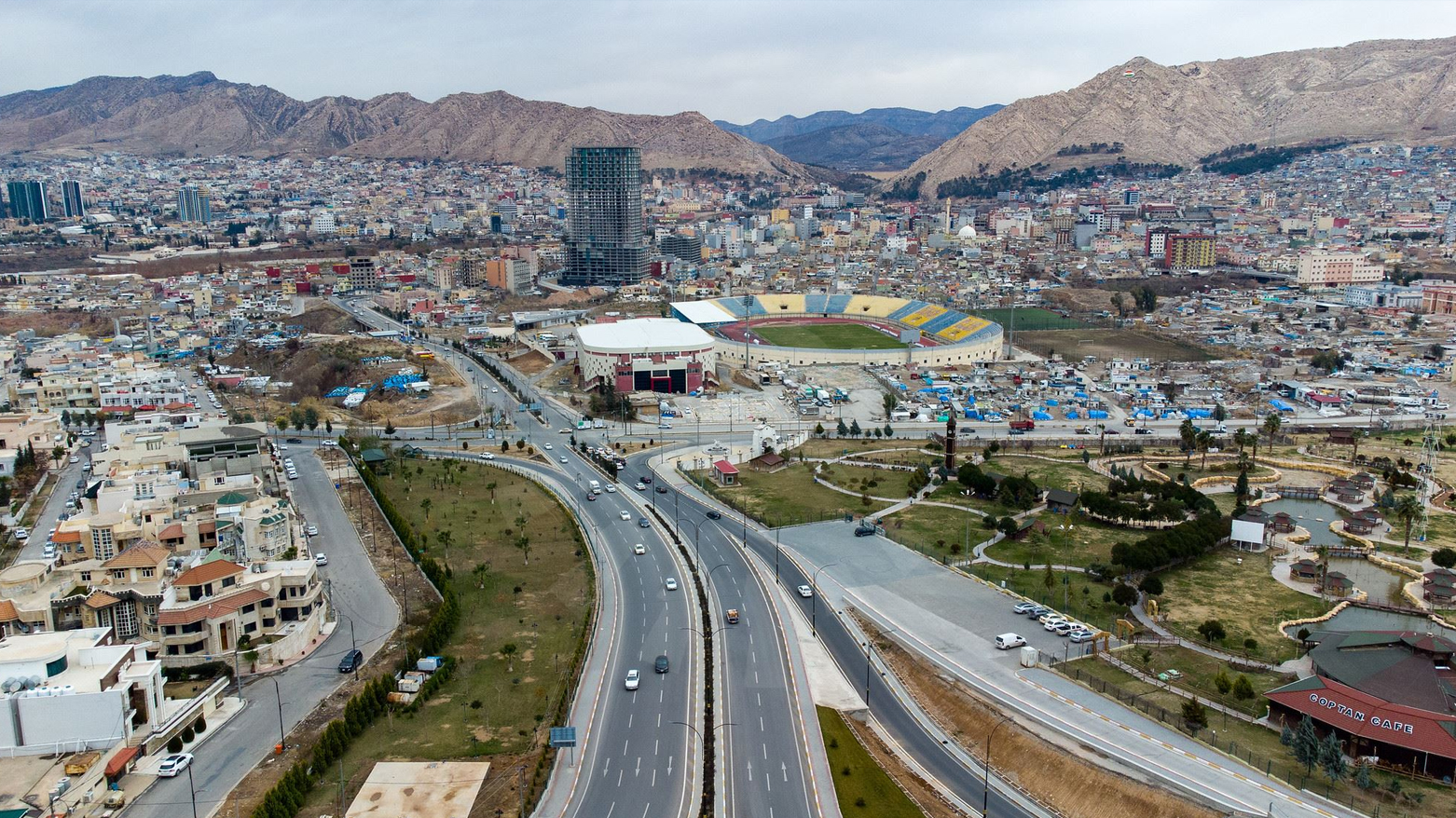Duhok’s Low Crime Rate Hailed as Testament to KRG Security and Stability Efforts
Duhok province has the lowest crime rate in Iraq, a fact attributed to the KRG's effective security measures and stability. Shopkeepers express deep trust, leaving stores protected only by cloth, a sight unseen in other parts of Iraq where crime and instability are rampant.

ERBIL (Kurdistan24) – In a striking testament to the efficacy of the Kurdistan Regional Government's sustained efforts to provide safety and stability, Duhok province has officially been recognized as having the lowest crime rate in all of Iraq, a distinction that has fostered a palpable sense of security and profoundly shaped the daily commercial and social life of its residents. This undisputed fact, confirmed by statistics from the Iraqi Ministry of Interior, stands in stark contrast to the insecurity and high crime rates plaguing provinces in central and southern Iraq, highlighting the tangible success of KRG initiatives, including a robust security presence and a determined crackdown on illegal weapon ownership.
The deep sense of peace in Duhok is vividly illustrated in the city’s central market, where an unusual and telling practice has become commonplace. Shopkeepers, confident in the prevailing security, often leave their storefronts unattended, with their valuable goods protected by nothing more than a simple piece of cloth draped over the entrance.
This act of trust, almost unimaginable in other parts of the country, has become a powerful symbol of the province’s exceptional safety.
Ubeid Shaban, a shopkeeper who has followed this practice for over a decade, shared his experience with Kurdistan24, attributing his peace of mind directly to the effectiveness of the local security forces.
"I've never had any problems," he said. "If there were no security, we wouldn't leave our goods. With security, we are protected, and no one dares to do anything, because of the security."
He further explained the deterrent effect of a reliable justice system, adding, "If there is security, it means that if someone takes something, they will be caught within an hour. This is a sign of security."
This unique atmosphere has not gone unnoticed by visitors. Sa'ir Ahmed, an Arab tourist from another part of Iraq, expressed his astonishment at the scene.
"Closing these shops in this way is a sign that the security and the political and economic stability are very good," he told Kurdistan24. "This is a very good thing; we have not seen it in Iraq."
The official data corroborates these anecdotal observations. According to the Iraqi Ministry of Interior, which publishes a biannual report on crime rates, Duhok consistently records the lowest figures not only within the Kurdistan Region but across all of Iraq’s provinces.
This achievement is particularly noteworthy when compared to the situation in southern cities like Nasiriyah, where rising crime, fueled by tribal conflicts, drug use, and the weakness of security forces, has had a corrosive effect on daily life.
Sheikh Nabil Ibrahim Dahmash, a tribal leader from Nasiriyah, spoke of the tragic consequences of this instability, recounting to Kurdistan24 how his own son became a victim of the violence that has killed or injured over 30 people in local conflicts.
Duhok’s status as a bastion of safety and stability is the result of a multi-faceted and long-term strategy implemented by the KRG. A cornerstone of this approach has been the firm control over firearms.
In 2022, Kurdistan Region Prime Minister Masrour Barzani ordered the closure of all unauthorized gun dealerships and the seizure of all unlicensed weapons. "We will not allow anyone to undermine public peace and security," the Prime Minister stated at the time, launching a national campaign that has since seen over 17,000 weapons registered.
Lieutenant Karzan Amir Ghafoor of the Kurdistan Regional Police explained the impact of this initiative, noting that with each weapon now registered to a specific owner, accountability has been significantly enhanced, thereby preventing the use of firearms in crimes without the owner's knowledge and ensuring that perpetrators face legal consequences.
This foundation of security has enabled a broader transformation across the province. Fifty-six years after it was established as a province through the efforts of the late Kurdish leader Mullah Mustafa Barzani, Duhok has evolved under KRG administration into a model of institutional strength, modern infrastructure, and peaceful coexistence.
The province now boasts seven universities, 1,500 schools, and a robust healthcare system, with a corresponding revival in its urban and rural landscapes.
This development has been holistic, touching every aspect of public life. The KRG’s ambitious Runaki Program, for instance, recently achieved a major milestone by providing 24-hour uninterrupted electricity to over 120,000 subscribers in Duhok city.
The initiative, completed in just four months, has led to the shutdown of 450 private generators, revitalizing commerce, improving quality of life, and even drawing the attention of Iraq's federal Ministry of Electricity as a potential model for national replication.
The province’s economic vitality is also flourishing, particularly in the agricultural sector. Supported by KRG policies aimed at economic diversification, Duhok has become the top grape producer in Iraq, with an anticipated harvest of 60,000 tons this year. The establishment of new processing factories has solved long-standing market surplus issues, providing stability for farmers and reinforcing the success of the government’s strategy to promote local products.
Ultimately, the tranquility and prosperity evident in Duhok are interconnected. The security provided by the KRG has created the necessary conditions for economic growth, infrastructural development, and a high quality of life.
The sight of a shopkeeper confidently leaving his goods protected by a simple cloth is more than just a quaint local custom; it is a profound indicator of a society where law and order are respected, where institutions are effective, and where citizens can live and work without fear. It is a reality that the KRG has painstakingly built, and one that continues to serve as a beacon of what is possible for the rest of Iraq.
Kurdistan24's correspondent Bewar Helmi contributed to this report.